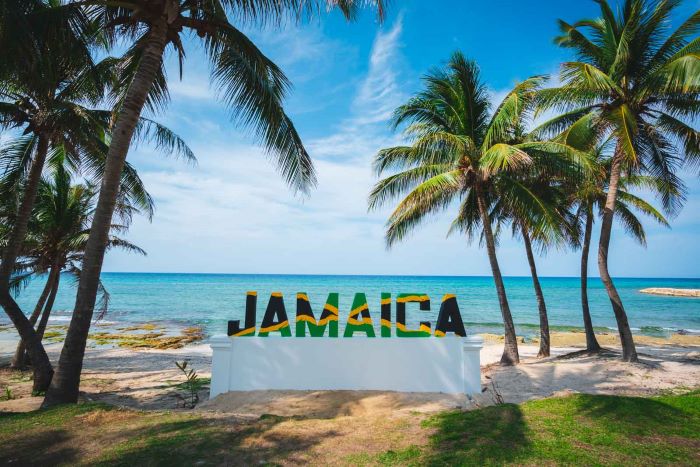Jamaica is a vibrant and fascinating island nation that attracts millions of tourists each year. From its stunning beaches to its lush rainforests, It is a land of natural wonders and cultural riches. However, like any destination, Jamaica has its share of safety concerns that travelers should be aware of. Some of the safety concerns include petty theft, gang violence, and the possibility of natural disasters such as hurricanes. By staying aware of your surroundings, avoiding certain areas at night, and keeping your valuables secure, you can greatly reduce your risk of encountering any issues while enjoying all that the island has to offer.
In this article, we’ll explore some of the best ways to stay safe and secure while visiting Jamaica.
Jamaica is a beautiful and welcoming country, but like many nations, it has its share of safety challenges. Here are some of the most common safety concerns that travelers should be aware of:
Crime is a significant safety concern in Jamaica, particularly in urban areas such as Kingston and Montego Bay. The most common types of crimes are theft, robbery, and petty crime. However, more serious crimes like murder and sexual assault can happen, even in areas where tourists are common. To stay safe, it’s essential to be aware of your surroundings and take precautions, such as not carrying large amounts of cash or wearing expensive jewelry.
Keep your valuables in a secure location, and don’t leave your belongings unattended. When using ATMs or exchanging currency, be cautious and use machines located in well-lit and busy areas. It’s also a good idea to avoid walking alone at night, particularly in areas that are not well-lit or crowded. If you need to travel at night, consider using a reputable taxi service or hiring a private driver.
Be cautious when using public transportation and avoid traveling alone, particularly if you’re not familiar with the area.
Jamaica’s roads can be hazardous, particularly for inexperienced drivers. The roads are often narrow and winding, and many drivers ignore traffic laws. In addition, many roads are poorly maintained, which can lead to accidents. If you plan to drive in Jamaica, it’s essential to be cautious and follow traffic laws.
Always wear your seatbelt, and be prepared for unexpected road hazards such as potholes and animals crossing the road. Avoid driving at night if possible, as roads can be poorly lit and it can be challenging to see hazards.
If you’re not comfortable driving in Jamaica, consider using a reputable taxi service or hiring a private driver. This can be a safer option and can help you avoid the stress of navigating unfamiliar roads.
Jamaica is located in the hurricane belt, and severe weather can occur at any time during hurricane season (June to November). In addition, Jamaica is prone to earthquakes and landslides.
If you’re traveling to Jamaica during hurricane season, it’s essential to be prepared for severe weather. Have an emergency kit and a plan in place in case of a hurricane or other natural disaster. Follow the advice of local authorities and monitor weather reports closely.
If you’re in Jamaica during an earthquake, it’s essential to be aware of the risks and take precautions, such as staying away from tall buildings and other structures that could collapse.
Make sure to have an emergency kit with enough supplies for at least three days, including food, water, and first aid items. It’s also important to have a plan in place for evacuation or seeking shelter if necessary.
While Jamaica has its share of safety challenges, there are many things that travelers can do to stay safe and secure. Here are some tips for staying safe while traveling in Jamaica:
- Research Your Destination
Before you travel to Jamaica, take some time to research your destination. Learn about the neighborhoods you plan to visit, and be aware of any safety concerns. Check the State Department’s website for travel advisories and warnings, and be sure to read up on local customs and etiquette.
While in Jamaica, use common sense and be aware of your surroundings. Avoid carrying large amounts of cash or wearing expensive jewelry, and keep your valuables in a secure location. Don’t leave your belongings unattended, and be cautious when using ATMs or exchanging currency.
- Be Mindful of Your Alcohol Consumption
Jamaica is known for its rum and other alcoholic beverages, but excessive alcohol consumption can put you at risk. Drink responsibly and be mindful of your surroundings, particularly at night.
- Hire a Guide or Tour Operator
If you’re not familiar with Jamaica, consider hiring a guide or tour operator to help you navigate the island. A reputable guide can help you avoid unsafe areas and provide valuable insights into local culture and customs.
When traveling in Jamaica, use safe transportation options such as taxis or reputable car rental companies. Avoid using unlicensed taxis or public transportation, which can be unsafe.
- Be Prepared for Natural Disasters
If you’re traveling to Jamaica during hurricane season, be prepared for severe weather. Have an emergency kit and a plan in place in case of a hurricane or other natural disaster.
Q: Is Jamaica safe for tourists? A: Yes, Jamaica is generally safe for tourists, but travelers should be aware of the safety challenges and take precautions to stay safe and secure.
Q: What are some common safety concerns in Jamaica? A: Some common safety concerns in Jamaica include crime and road safety.
Overall, Jamaica is a beautiful and welcoming country that offers a wealth of natural and cultural attractions. However, like any destination, it has its share of safety concerns. By following the tips and precautions outlined in this article, you can stay safe and secure while exploring all that Jamaica has to offer. Remember to use common sense, be aware of your surroundings, and take precautions to stay safe and secure while traveling.

Jamal is the knowledgeable voice behind EDB Travel, bringing over 4 years of experience in travel writing and destination expertise. Holding a degree in Tourism Management, Jamal specializes in showcasing Jamaica’s rich culture, vibrant attractions, and hidden gems. His extensive background and local insights provide readers with valuable tips and in-depth guides to explore Jamaica like a pro. Follow Jamal on Pinterest and Instagram for the latest travel inspirations and updates.

